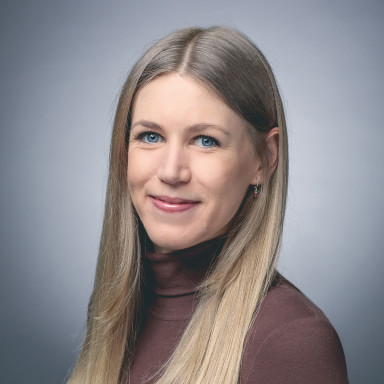- Ben Whitmore is a specialist in finding unloved companies with recovery potential
- His team use the same disciplined approach across all the regions they invest in
- Performance since the fund’s launch has been held back by its value style being out of favour, but more recently this trend has started to reverse
- This fund features on our Wealth Shortlist of funds chosen by our analysts for their long-term performance potential
How it fits in a portfolio
Jupiter Global Value Equity aims for long-term growth by investing in undervalued companies with recovery potential. That makes it different from many other global funds that focus on companies with high-growth expectations, and we think the two styles could complement each other in a portfolio. North American companies make up less of this fund than many other global funds, which means it could provide international diversification to an adventurous portfolio.
Manager
Ben Whitmore is an experienced investor with 28 years of industry experience. He joined Jupiter in 2006, having previously worked at Schroders managing UK companies funds. At Jupiter, he’s also managed the Jupiter UK Special Situations Fund since 2006 and the Jupiter Income Trust since 2013. Whitmore is also Jupiter’s Head of Strategy for Value Equities. Given the overlap in process and approach, we think he’s able to devote enough time to each.
Dermot Murphy is co-manager of the fund alongside Whitmore. He joined Jupiter in 2014 and is part of the Value Equities Team. He has worked in the industry for almost a decade and previously worked at Fidelity as a building materials analyst. Although we don’t doubt Murphy’s skills, our main conviction lies in Whitmore. The managers also benefit from the support of two dedicated equity analysts.
We admire the managers’ disciplined approach and commitment to their style, even when it’s faced strong headwinds. It can take courage and perseverance to invest the way they do, and we think they have both in abundance. Combined with Whitmore’s strong, long-term track record, that’s why the fund is on the Wealth Shortlist.
Process
Whitmore and Murphy’s investment philosophy stems from the idea that the highest returns come from buying shares with the lowest valuations. That’s why the managers hunt for companies whose share price, in their opinion, doesn’t reflect their true worth and so can be bought at an attractive price. The reason why they are undervalued varies from company to company, but it can often be the result of poor management decisions, financial or wider industry pressures. It’s important to remember that this approach can take time to come to fruition though, so it requires patience.
Many of these shares are cheap for a reason and face a gloomy future, often referred to as ‘value traps’. The managers aim to avoid these and only buy quality companies which they believe have the potential to recover. To value a company, they look closely at the strength of the business, its financial health and its long-term average share price and compare that to the current share price.
This research results in a portfolio of around 35-45 holdings, which is a relatively concentrated approach. This means each investment can contribute significantly to overall returns but it can increase risk. Currently the managers invest in 48. Over half the fund invests in larger companies with the remainder spread across medium-sized and higher-risk smaller companies. The majority are from developed regions like Europe, the US and Japan, but the managers also invest in higher-risk emerging markets.
The managers’ style means they tend to invest quite differently to the broader global stock market. For example, they have little exposure to ‘growth’ sectors such as technology and healthcare. In contrast, they invest a lot more in companies whose fate lies in the hands of the consumer, such as Harley Davidson.
Over the past 12 months the managers have invested in some new companies, one example being Intel, a global leader in the semiconductor industry. The share price has declined because of delays in producing their latest chip. With a strong balance sheet, brand and profitability, the team believe the share price has potential to rise from here. Another example is Swatch, the luxury watch manufacturer. It owns a number of top Swiss brand names however the share price has suffered due to concerns about demand for luxury watches. Whitmore thinks these concerns are overdone, particularly on a longer-term view.
In contrast, several holdings were sold where the team’s valuation target had been met or they had found better opportunities elsewhere. These included Oracle Financial Services Software, Pandora, Hugo Boss and Dai Dan.
Culture
Jupiter is a well-known asset manager and part of the FTSE 250. Fund managers are given autonomy to invest the way they see fit, but with an appropriate level of challenge from others in the business. The business setup allows Whitmore and Murphy to focus purely on fund management and take a long-term view, which is important as their value style of investing often requires patience.
Fund managers at Jupiter are incentivised in line with the performance of their funds over various timeframes. We think this aligns their interests with those of investors and helps the managers to focus on delivering strong performance for clients.
ESG integration
Jupiter’s approach to ESG (Environmental, Social and Governance factors) is fund manager led, so the fund managers themselves are responsible for implementing ESG in their investment analysis. While managers are given freedom in how they incorporate ESG into their investment decisions, they are frequently challenged on their ESG analysis by an in-house Governance & Sustainability team.
We like that the fund managers are not being forced to adopt ESG policies that they may not agree with or may not fit with their investment style.
Whitmore and Murphy have incorporated ESG factors into their analysis and have an ESG materiality risk score for all companies that they assess. While these factors are considered, the risk-return profile of potential investment opportunities remains more important to them. An example of this is the investment in KT&G, a tobacco company whose share price is low compared to peers but has a good next-generation product proposition.
Cost
The fund usually has an annual ongoing charge of 0.93%, but we’ve negotiated a 0.40% saving so it’s available to HL clients for 0.53%. We think this is a great price to access Whitmore’s best global ideas. The HL platform fee of up to 0.45% per year also applies.
Performance
Performance has been mixed since the fund launched in March 2018. Over this period the fund returned 32.31%* vs 50.97% for the IA Global sector average. Remember that past performance isn’t a guide to future returns.
The managers’ ‘value’ style was out of favour for some time and the main reason for underperformance. More recently this trend has started to reverse following the beginning of the market recovery after the initial sell-off at the start of COVID. Since 31 March 2020, the fund has delivered returns of 62.42% vs 47.76% for the sector average.
Holdings like H&R Block, Standard Chartered and Sky Network Television were some of strongest performers. H&R Block has benefited from the market no longer thinking they had no future. Standard Chartered has been helped by the rising interest rate environment, which has allowed them to increase profits. Sky has stabilised earnings and agreed to return some capital to shareholders, causing the share price to rebound.
Not all their investments did well though. Tyre maker Continental was one of the weakest performers but the managers maintain conviction. KGF, despite a new management team since 2019 making significant improvements to the business, and Prosegur also detracted from returns.
| Annual percentage growth | |||||
|---|---|---|---|---|---|
| Aug 17 -
Aug 18 |
Aug 19 -
Aug 19 |
Aug 19 -
Aug 20 |
Aug 20 -
Aug 21 |
Aug 21 -
Aug 22 |
|
| IA Global | 10.78% | 5.27% | 6.61% | 26.55 | -5.50% |
| Jupiter Global Value Equity | N/A | -5.25% | -7.78% | 33.53% | 6.00% |
Past performance is not a guide to the future. Source: *Lipper IM to 31/08/2022.
N/A = performance data for this time period is not available.
FIND OUT MORE ABOUT THE JUPITER GLOBAL VALUE EQUITY, INCLUDING CHARGES
JUPITER GLOBAL VALUE EQUITY KEY INVESTOR INFORMATION
Want our latest research sent direct to your inbox?
Our expert research team provide regular updates on a wide range of funds.

